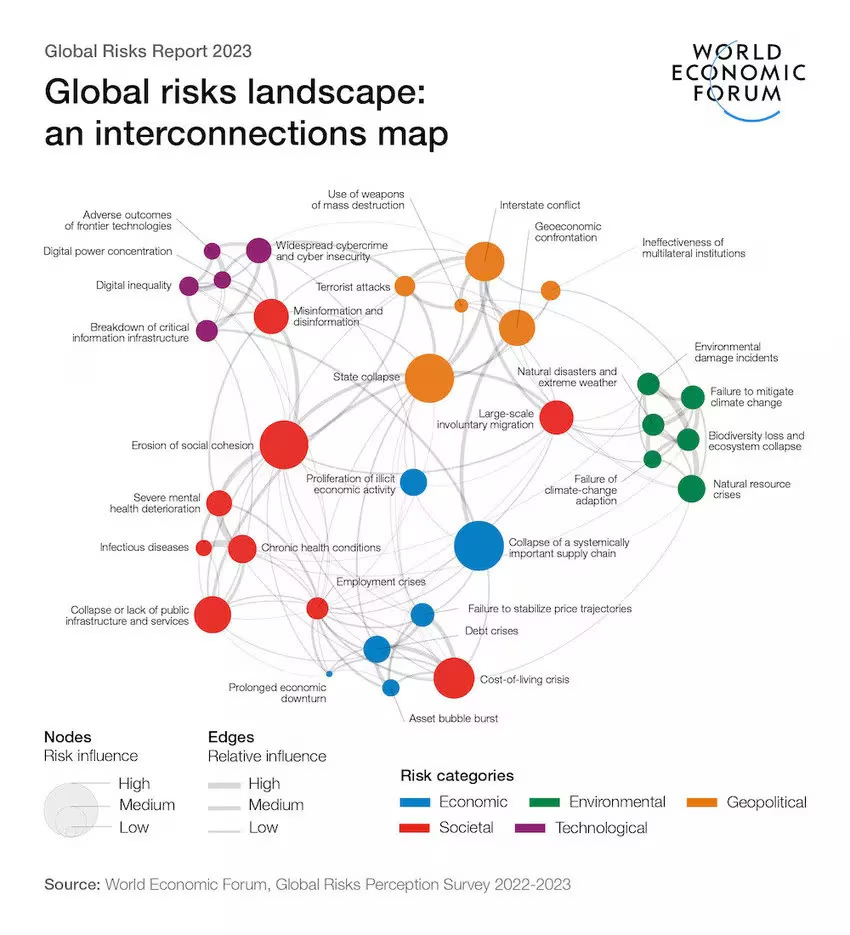Is This the ‘New Normal’?
Ty Montague, Chairman, co:cocollective.

This question is at the center of most of the discussions we have lately. With friends, with family, with co-workers, with our clients, and potential clients. I think in some way we are all struggling to understand what is happening and why. And most importantly, we are all trying to understand how we should be reacting. Is this a phase? I.e. is it a temporary storm that will just blow through – leaving damage but also the ability to repair and return to the previous state? Or is this something else, some deeper shift? It’s an important question for all of us because it informs the way we think about our behavior moving forward, as citizens and also as business leaders.
Bottom line? Yep, this is the new normal.
Based on the data we look at, over the next 5 to 10 years it looks like the rising political, economic, and environmental chaos we are experiencing is here to stay because it’s being driven by increasing competition for the basic (and finite) resources that enable economic growth:
- Reliable and inexpensive energy,
- Abundant raw materials including nutritious food and clean water
- Affordable shelter in places with a stable government.
As this competition intensifies, there will be winners and there will be losers and unfortunately things will get bumpy(er) for everyone.
When looking for culprits, climate change often appears in the mug shot, but it’s more complicated than that. Certainly, both the global and regional effects of climate change and also the shifting winds of economic opportunity are driving unpredictable patterns of immigration and emigration. This is leading to escalating international tensions and in some cases outright conflict. And despite the hopeful headlines about the global energy transition, the amount of C02 humanity releases into the atmosphere continues to increase every year, with no credible plan to slow it down, much less stop it. But there are other factors, as well. In the U.S., growing income inequality is a big contributor to social instability and it looks on track to continue to grow, as does our already unprecedented national debt. Environmental degradation is also a growing factor that many are only dimly aware of. All of the above make for increasingly patchy and unstable markets and supply chains for pretty much everything we produce or consume today. Add AI to this mix, which we believe will be an accelerant of both the positive AND negative trends – more productivity, AND fewer jobs – for example, and you have the situation of overlapping and interconnected issues that have now become referred to by the World Economic Forum as the “global polycrisis.”

And, yeah, the inevitability of the upward trend of all of these things is certainly debatable. It‘s human nature to be suspicious of predictions, especially about things we cannot see, touch, taste, or smell today. So there’s plenty of room for lively discussion.
But ask yourself this: does it seem likely that all of these issues will suddenly and simultaneously sort themselves out in the next few quarters so we can all just go back to business as usual? Our answer is, emphatically, no.
So, then what?
Well, first, sitting still is not an option. Waiting for more data or better clarity is seductive, but in times of rapid and accelerating change, those who freeze are at the greatest risk of being trampled. As business leaders we have to keep our companies moving forward, looking as far into this murky new future as we can and defining a positive pathway for all of our stakeholders. We all need what we call a resilience strategy.
Questions to ask yourselves:
Do you have a resilient business? One that stakeholders, including shareholders, can be confident is prepared for turbulence?
- Have you defined your purpose and created a vision for the ideal outcome for you, your business, and all of its stakeholders 10 years out?
- Have you mapped and assessed the resources and systems that your business relies on to achieve that vision?
- Have you defined your strategy for a world in which, due to scarcity or conflict, some of those resources are much harder to come by? For example: in many cases when you think about a future where raw materials are an order of magnitude more expensive than they are today, the business case for nearshoring and circularizing your supply chain often makes itself.
- Are you equipped to rapidly evolve how you deliver on your vision as customer needs and market conditions evolve?

Do you have a resilient workforce? What are you doing in this environment to attract the best talent and provision them for success?
- Do your employees know your purpose and how it applies to them?
- Have you defined the actions they need to take to help the organization deliver on it?
- Are you regularly telling impact stories about how the internal teams are living your purpose?
- Are you modeling the behavior you hope to see in them when something unexpected happens (like, not freaking out?)
Do you have a resilient brand? One that combines a long-term point of view with the ability to rapidly evolve?
- Do you have a clear foundation for your brand: a long-term core story, identity, and personality that can outlive visual trends and market changes?
- Do you have a brand architecture that focuses on a minimal number of elements but is extensible and flexible to permit future changes with low change and cost?
- Are you experimenting with and continuously optimizing content and experiences that respond to changes in audience needs and channel conditions?
- Are you in near-to-real-time dialog with key customer segments to stay on top of their changing needs and priorities?
At co: we are recommending that all companies spend some time reflecting on these questions today. Because companies that have done this work are much better prepared to embrace the next chapter of their story with the confidence and optimism it will take to thrive tomorrow.
Ty Montague is the co-founder and chairman of co:collective, a leading strategic transformation consultancy for purpose-led businesses, and a member company of Future Proof Advisors. co: helps companies define their sustainability and circularity strategy as well as their long-term vision for contending with the growing global polycrisis.
Learn more about co:collective. Follow Ty on LinkedIn.